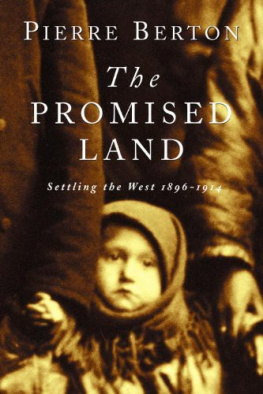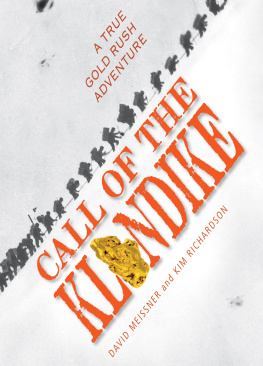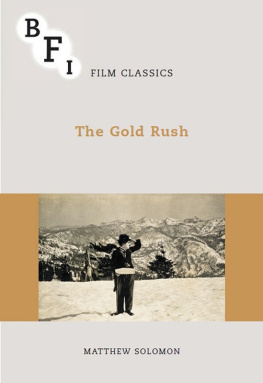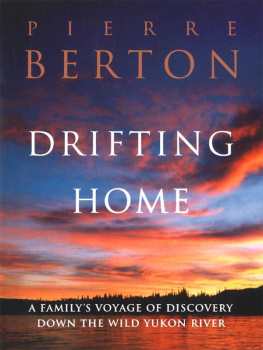Pierre Berton - Klondike: The Last Great Gold Rush, 1896-1899
Here you can read online Pierre Berton - Klondike: The Last Great Gold Rush, 1896-1899 full text of the book (entire story) in english for free. Download pdf and epub, get meaning, cover and reviews about this ebook. year: 2001, publisher: Anchor Canada, genre: Art. Description of the work, (preface) as well as reviews are available. Best literature library LitArk.com created for fans of good reading and offers a wide selection of genres:
Romance novel
Science fiction
Adventure
Detective
Science
History
Home and family
Prose
Art
Politics
Computer
Non-fiction
Religion
Business
Children
Humor
Choose a favorite category and find really read worthwhile books. Enjoy immersion in the world of imagination, feel the emotions of the characters or learn something new for yourself, make an fascinating discovery.

- Book:Klondike: The Last Great Gold Rush, 1896-1899
- Author:
- Publisher:Anchor Canada
- Genre:
- Year:2001
- Rating:4 / 5
- Favourites:Add to favourites
- Your mark:
- 80
- 1
- 2
- 3
- 4
- 5
Klondike: The Last Great Gold Rush, 1896-1899: summary, description and annotation
We offer to read an annotation, description, summary or preface (depends on what the author of the book "Klondike: The Last Great Gold Rush, 1896-1899" wrote himself). If you haven't found the necessary information about the book — write in the comments, we will try to find it.
Klondike: The Last Great Gold Rush, 1896-1899 — read online for free the complete book (whole text) full work
Below is the text of the book, divided by pages. System saving the place of the last page read, allows you to conveniently read the book "Klondike: The Last Great Gold Rush, 1896-1899" online for free, without having to search again every time where you left off. Put a bookmark, and you can go to the page where you finished reading at any time.
Font size:
Interval:
Bookmark:
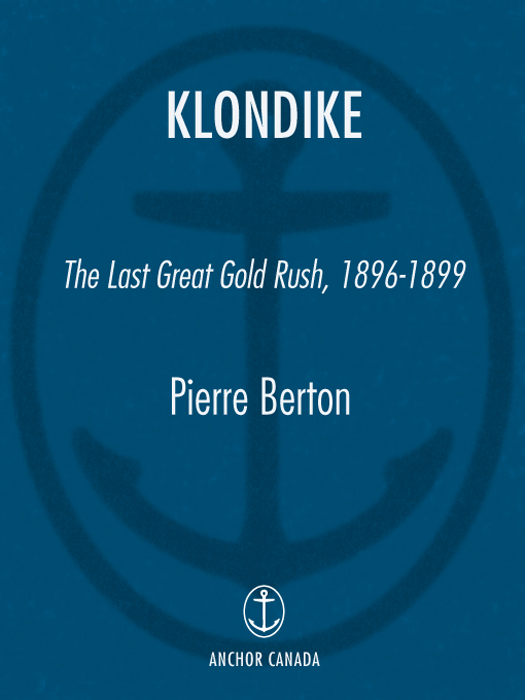
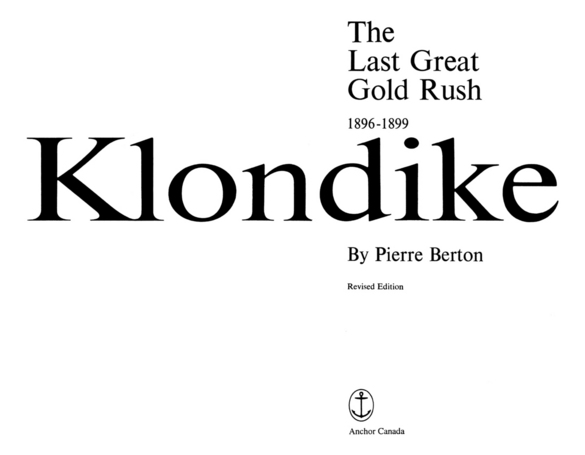
Copyright 1972 by Pierre Berton Enterprises Ltd.
Anchor Canada paperback edition 2001
All rights reserved. The use of any part of this publication, reproduced, transmitted in any form or by any means electronic, mechanical, photocopying, recording or otherwise, or stored in a retrieval system without the prior written consent of the publisher or, in the case of photocopying or other reprographic copying, a license from the Canadian Copyright Licensing Agency is an infringement of the copyright law.
Anchor Canada and colophon are trademarks.
National Library of Canada Cataloguing in Publication Data
Berton, Pierre, 1920
Klondike : the last great gold rush, 18961899
eISBN: 978-0-385-67364-8
I. Klondike River Valley (Yukon) Gold discoveries. I. Title.
FC4022.3.B468 2001 971.91 C2001-930604-0
F1095.K57 2001
Published in Canada by
Anchor Canada, a division of
Random House of Canada Limited
Visit Random House of Canada Limiteds website:
www.randomhouse.ca
v3.1
All my life, he said, I have searched for the treasure. I have sought it in the high places, and in the narrow. I have sought it in deep jungles, and at the ends of rivers, and in dark caverns and yet have not found it.
Instead, at the end of every trail, I have found you awaiting me. And now you have become familiar to me, though I cannot say I know you well. Who are you?
And the stranger answered:
Thyself.
From an old tale
The Royal Family
The Mysterious North
Klondike
Just Add Water and Stir
Adventures of a Columnist
Fast Fast Fast Relief
The Big Sell
The Comfortable Pew
The Cool, Crazy, Committed World of the Sixties
The Smug Minority
The National Dream
The Last Spike
Drifting Home
Hollywoods Canada
My Country
The Dionne Years
The Wild Frontier
The Invasion of Canada
Flames Across the Border
Why We Act Like Canadians
The Promised Land
Vimy
Starting Out
The Arctic Grail
The Great Depression
Niagara: A History of the Falls
My Times: Living with History
1967, The Last Good Year
Picture Books
The New City (with Henri Rossier)
Remember Yesterday
The Great Railway
The Klondike Quest
Pierre Bertons Picture Book of Niagara Falls
Winter
The Great Lakes
Seacoasts
Pierre Bertons Canada
Anthologies
Great Canadians
Pierre and Janet Bertons Canadian Food Guide
Historic Headlines
Farewell to the Twentieth Century
Worth Repeating
Welcome to the Twenty-first Century
Fiction
Masquerade (pseudonym Lisa Kroniuk)
Books for Young Readers
The Golden Trail
The Secret World of Og
Adventures in Canadian History (22 volumes)
Drawn by Henry Mindak
To my father,
who crossed his Chilkoot in 1898,
and to my sons,
who have yet to cross theirs
When the first through passenger train of the Canadian Pacific Railway set off for the new terminus of Vancouver in June of 1886, Canada ceased to be merely a geographical expression. Bound together at last by John A. Macdonalds iron link, the country could expect the speedy fulfilment of his national dream the creation of a populous and prosperous North West from the empty prairie lands that had been given up a generation before by the Hudsons Bay Company.
But in the decade that followed, that vision was scarcely fulfilled. In the heady construction days of the early eighties, a western boom of unprecedented proportions seemed to be in the making; unhappily, over-optimism, wild speculation, drought, crop failure, and depression brought a swift decline in immigration figures. The bubble burst; and though the settlers continued to trickle in, the wave of newcomers that had been expected to follow the driving of the steel did not appear.
Suddenly, in 1897, the news from the Klondike burst upon the continent and everything was changed. The transition was instantaneous there is no other word for it. The CPR trains were jammed with passengers heading west to invade the North through Prince Albert, Edmonton, Ashcroft, or Vancouver. Within a year, the interior of British Columbia, the Peace River country, and the entire Mackenzie and Yukon watersheds were speckled with thousands of men and pack animals. For the first time, really, the Canadian north was seen to be something more than frozen wasteland: a chain of mineral discoveries, reaching into modern times, was touched off by the Klondike fever. Every western Canadian community from Winnipeg to Victoria was affected permanently by the boom. Vancouver doubled in size almost overnight; Edmontons population trebled. The depression, whose catalyst had been the silver panic of 1893, came to an end. It was replaced by an ebullient era of optimism and prosperity. New transcontinental railways were mooted and eventually constructed. A CPR contractors son, Clifford Sifton, who had just been named Minister of Immigration in the Laurier cabinet, launched his historic propaganda campaign to fill up the empty spaces on the plains. In the North West, a new boom was in the making.
The Klondike story, then, forms a gaudy interlude between the two epic tales of post-Confederation western development the building of the railway and the mass settlement of the plains. Since the author expects to tell the latter story in a subsequent volume, this expanded and revised edition of a fifteen-year-old work has been redesigned to conform to his two histories of the railway construction period, The National Dream and The Last Spike.
Because the stampede to the Klondike straddled the international border, it provides a unique opportunity to compare the mores and customs of two neighbouring nationalities. Here was the most concentrated mass movement of American citizens onto Canadian soil in all our history. In the space of fewer than eighteen months, some fifty thousand men and women brought up with the social, legal, and political traditions of the United States found themselves living temporarily under a foreign flag, obeying, however reluctantly, foreign regulations, and encountering a foreign bureaucracy and officialdom. In Dawson, and indeed almost everywhere save on the all-Canadian trails, the Americans outnumbered the Canadians by at least five to one.
It has often been said (usually by Americans) that there is no great difference between those who live south of the forty-ninth parallel and those of us who live on the Canadian side; but the Klondike experience supplies a good deal of evidence to support the theory that our history and our geography have helped to make us a distinct people not better and not worse but different in style, background, attitude, and temperament from our neighbours.
Our national character has not been tempered in the crucible of violence, and our attitudes during the stampede underline this historic truth. In all the Americas ours is the only country that did not separate violently from its European parents. We remained loyal and obedient, safe and relatively dispassionate, and we welcomed to our shores those other loyalists who opted for the status quo. If this lack of revolutionary passion has given us a reasonably tranquil history, it has also, no doubt, contributed to our well-known lack of daring. It is almost a Canadian axiom that we would rather be safe than sorry; alas, we are sometimes sorry that we are so safe.
Font size:
Interval:
Bookmark:
Similar books «Klondike: The Last Great Gold Rush, 1896-1899»
Look at similar books to Klondike: The Last Great Gold Rush, 1896-1899. We have selected literature similar in name and meaning in the hope of providing readers with more options to find new, interesting, not yet read works.
Discussion, reviews of the book Klondike: The Last Great Gold Rush, 1896-1899 and just readers' own opinions. Leave your comments, write what you think about the work, its meaning or the main characters. Specify what exactly you liked and what you didn't like, and why you think so.

